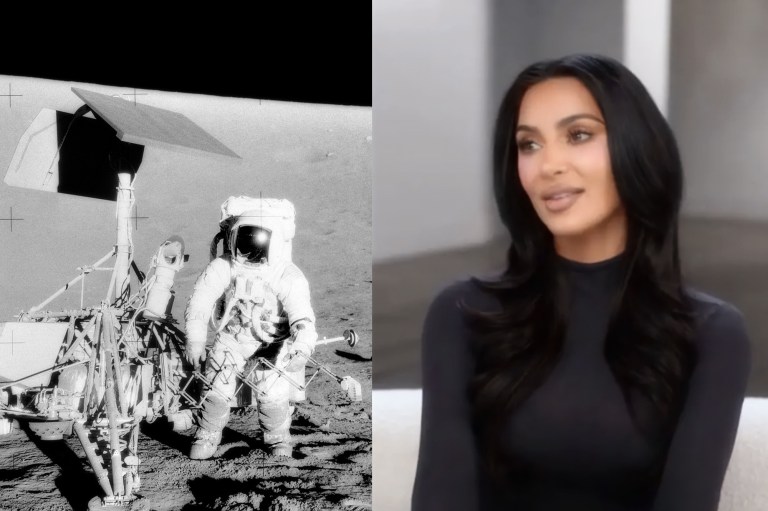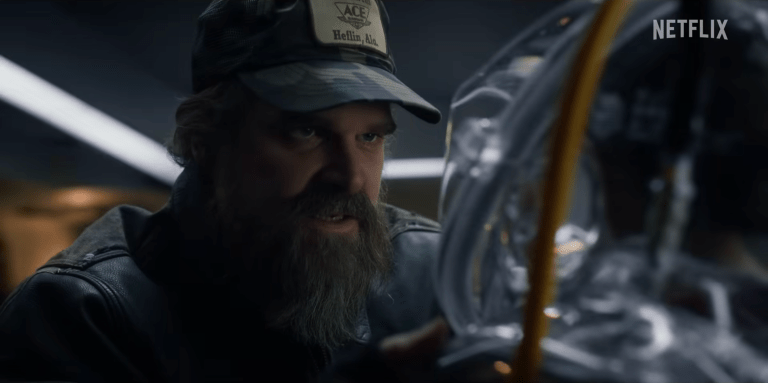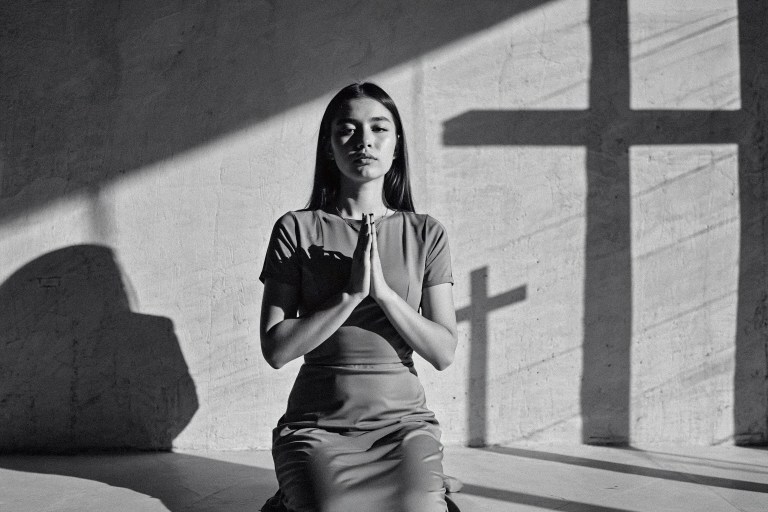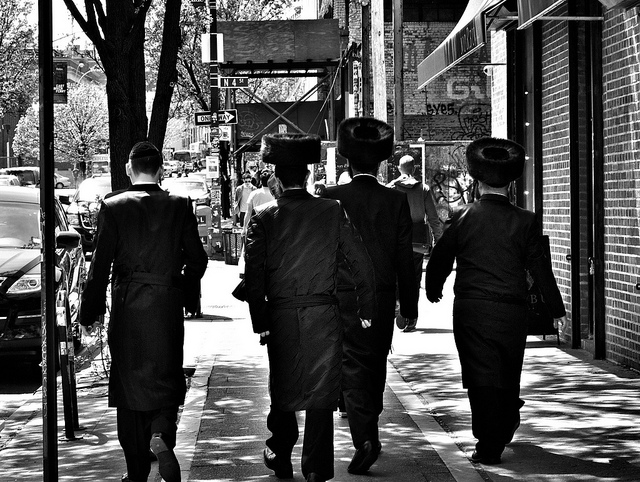
Being Queer and Jewish in Ultra-Orthodox Brooklyn
Living in Crown Heights would be akin to re-entering the closet, five years after having emerged from it. "Could you do that?" my mother asked me.
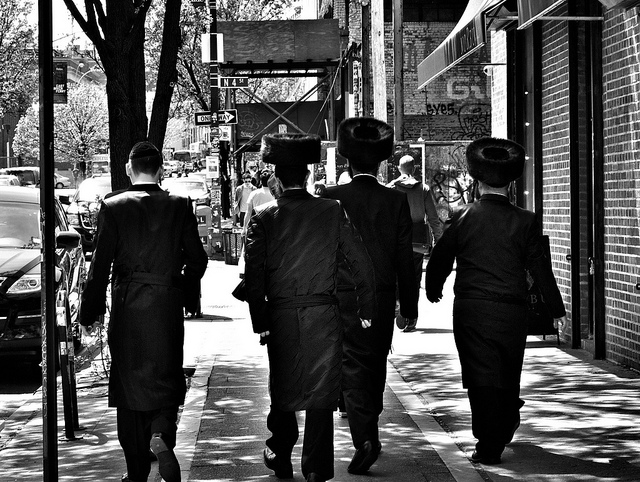
I walk home from a friend’s house party at two o’clock in the morning, tired from drinking. Nearing the corner of Kingston Avenue, I hear an aching chant. It is a prayer, the v’ahavta, and it comes from an elderly woman in a ratted dress, shuckling on the mezzanine of the Chabad synagogue. I stop and blink once, twice. She sees me and motions for me to come over, to join. I sit beside her and begin to recite it, this prayer I know with easy memory. A communal longing surges through me from the bottom of my rib-cage, igniting my bone marrow. It is only after we end the prayer with a quiet, resounding amen, that she asks for my name.
No, she says with a Yiddish inflection after I answer. Your real name. My Hebrew name.
Esther Yaakova bat Shimon ve Chaya, I say, relishing the formalities, the guttural buzz at the back of my throat.
She claps her hands once. Aha! My name is Esther, too!
Esther begins a line of questioning: do I live in the neighborhood, where do I go to shul, do I have anywhere to go for next Shabbos? I reply with a soft shyness, afraid that this moment of Jewish connection will end too soon, in a place where I perpetually press my face against glass, only able to look in and never enter.
We come to the subject of Jewish learning. I admit that I’ve contemplated seeking out a Torah study group. Yes, yes, she says, join my group. I meet with girls just like you.
Just like me, I think, but not like me at all.
You should know, I tell Esther, a sense of hope roiling in my gut, that things might be different this time, I live with my girlfriend.
She blinks once, twice.
I’m gay. Again, no recognition. I’m a homosexual.
She inches away, ever so slightly, and closes the siddur in her lap. Could I not be that way, she wonders out of the side of her mouth. But it’s impossible to not be any other way for me.
Oh. Then no.
At my apartment, my girlfriend asks why I’m home so late. After I finish the story, head cradled in my hands, she says that sleep will make me feel better in the morning. But in truth, I know that these small words are empty consolations, despite her best intentions. Only I could know otherwise, and yet, I don’t.
In Crown Heights, I have lived through one leaky roof, three Labor Day parades, and two hurricanes. My building is situated at the interstice of two cultures: on one side of the avenue marks the beginning of the West Indian community, and on the other the end of a concentrated niche of Orthodox Jews – mostly Hasidim, specifically Chabad Lubavitchers – who vie to live as close as possible to Kingston Avenue, the spiritual and commercial aorta of Jewish Crown Heights. In this way, it reminds me of the urban neighborhood where I had spent my childhood; the Judaica stores, Yiddish-scripted advertisements, and kosher butchers are reflective comforts.
When I moved to the neighborhood from Boston, I came with my now ex-girlfriend, a non-Jew, for a graduate program and a job offer, respectively. Crown Heights was a phrase our rental agent had thrown about with the tenacity of a jai-alai player, alternating it with other euphemisms like Pro-Cro and Prospect Heights Adjacent. At the time, Crown Heights was a hard sell, still stigmatized from the race riots of 1991. But the agent was convincing, the apartment was relatively close to campus, and I was enamored with its gut renovations and expansive rooms, heat and hot water included.
My mother informed me of her doubts. You have to remember to be cautious, she told me over the phone; that though I was as Jewish as my neighbors (and vice-versa) there was a good chance that our ideologies differed. These, too, were euphemisms. As an observant Conservative Jew, I was well aware of the general rifts between my own branch of Judaism and of the Orthodoxy that ran rampant in the community. To them, I thought, my assimilation was cheating, a game of pick-and-choose. One of many examples: though I light candles for Shabbos on Friday nights, I don’t always go to synagogue; to some, my day of rest wouldn’t be entirely holy. My Judaism would have to be proven – that is, if I decided I wanted to prove it to anyone other than myself.
Moreover, living in Crown Heights would be akin to re-entering the closet, five years after having emerged from it. Could you do that?, my mother asked me. And if I insisted on continuing with this move, it was probably best for me not to hold my girlfriend’s hand while walking down the street, at least until we were boxed in a moving subway car, going somewhere else. You might get eggs thrown at you, you might get egged, she said, I think I heard about that happening before.
Her concerns were not without warrant. Rabbi Menachem Mendel Schneerson, the last Hasidic leader of the Chabad Lubavitcher movement, generally acknowledged the existence of same-sex attraction, but still considered the idea of the homosexual act as an abomination, urging his gay followers to seek heterosexual marriages or celibacy. While sympathy and empathy towards homosexuality exist within the Hasidic nexus of Crown Heights, the mere act of touching my then-girlfriend affectionately in public, let alone kissing her, could attract trouble. But no matter, I would make do.
Consider this:
I go to the kosher butcher on Kingston with my girlfriend – a luxury for me, a Conservative Jewish kosher-keeper – and articulate the annals of ritual slaughter while the other beleaguered customers pretend to avert their gazes. But what are these shiksas doing here?, I imagine they ask themselves, as we avoid grazing each others’ hands.
A man sporting tzit-tzit tassles, grizzled side-locks, and eyes brimming with good intentions stops us both on the street and asks me — and only me — if I’m Jewish. Do you have a place to go to for Shabbos, to light candles?, he continues, pointedly ignoring my blonde companion. I tell her afterwards that it’s not a matter of proselytization, just looking out for one another. He wants me to feel at home.
A woman with a leathered face sits on a piece of cardboard outside of a grocer’s and asks me for tzedakah. All I have, besides my debit card, are a few quarters in my pocket. I give her what I can and she throws it back on the ground. I’m a cow, she tells me, do I even know what tzedakah is, what charity is? I do, I say, I’m Jewish, and she barks at me. No, I’m not.
So at first, there was a thrilling, guilty novelty to my duality, wherein some ways I am an obvious outlier (my assimilated dress and less obvious queerness), and in some ways not (my understanding of halacha, my knowledge of the lingo, my “Jewish looks”). But then my girlfriend didn’t want to go with me to the kosher butcher anymore; she was sick of people staring at her legs when she wore shorts in the summer, an anomalous sight for the male neighborhood-dwellers in fedoras and caftans. When holidays rolled around, I became reluctant to accept invitations into the homes of others, all sourced from the one Chabadnik friend I had made, a woman who I knew through our joint ventures in the Brooklyn literary community. It pitted my stomach to bring my girlfriend to these festive gatherings, introduce her as my roommate, and field questions from older guests as to whether I would consider a shadchan for a marriage match, or if I already have a b’sheret, a soulmate, in mind. I’m focusing on my studies, I would reply. Well, in time, someone’s great-aunt would say.
It is more than being separated by a warped version of a mehitzah, more than being cloistered. It is isolation. It is sitting in an empty sanctuary, prayer-book in my hands, waiting for my minyan, for my people, and knowing that no one else will come.
I walk down Troy Avenue to my apartment and see them approach: women my age or slightly older, in twos and threes, in knee-length skirts and black leggings, in chic frills and shirt-sleeves bunched above the hinges of their elbows. One wears a wig, denoting her marriage. They gesticulate with the ease of storytelling amongst friends, laugh with abandon. These frum girls, besides their dress, mirror my friends and me on nights out in the West Village. For a moment, I smile. And as we pass each other, I think: is one of them like me? Despite the husband, or the stroller in the hallway at home, or the way she dresses, is one of these women gay? Long after I have come to the door of my apartment, I try to guess. Because if one of them is like me, then in Crown Heights I am not alone.
My girlfriend leaves me, and for a short time, I start to see someone new. She lives out of town, but when she visits, I sometimes go with her to a kosher superette up the block. The owner, Yankee – a burly man with a quick smile – asks after her one day. Your friend, does she live with you now?
No, I reply, but she visits sometimes.
A few days later, Yankee inquires about her again as he bags a quart of milk. How is she doing?
Who?, I ask.
Your friend. Something punches my lungs. Your girlfriend.
I ask him how he knows, my voice low, though the shop is otherwise empty. He waves his hand in the air, dismissing the question.
How do I know? How don’t I? These things, you get a feeling for them. He looks at me, measuring the gape of my jaw. It is what it is. It’s nothing. Who’s to say otherwise?
After I collect my groceries from the counter, after I unlock my door and put my milk away in the fridge, I realize that I haven’t stopped smiling.
Perhaps my refusal to truly be myself in Crown Heights – to be open about who I am, a Jewish queer woman, is not entirely oppressive. Lost in my own preconceptions about the community that I love with verocity, despite everything, I forgot that people here, as everywhere, are complex. That they, as most, are loving. Every day that I buy milk or coffee at Yankee’s store, I silently thank him for reminding me that in the end, all of us are people. I thank him for unfolding my heart.
Now, here is what I know: the next time I date someone new, I will hold her hand in the sunlight. I will kiss her on the sidewalk, and pull back to see her face, blooming. ![]()

